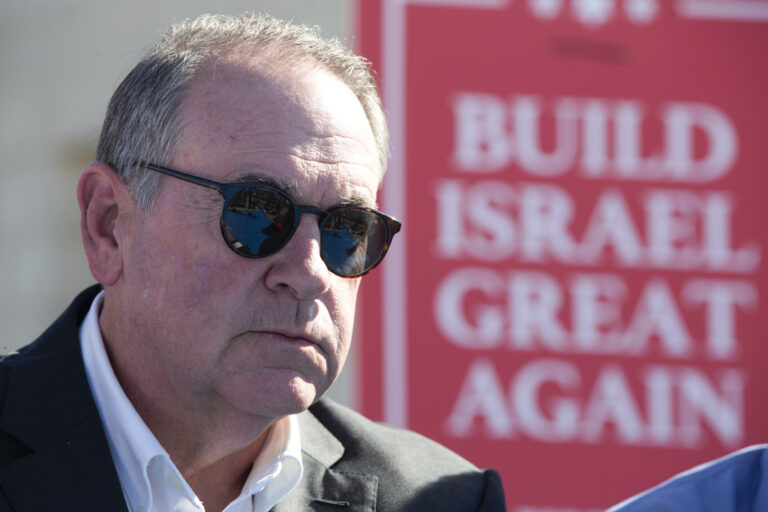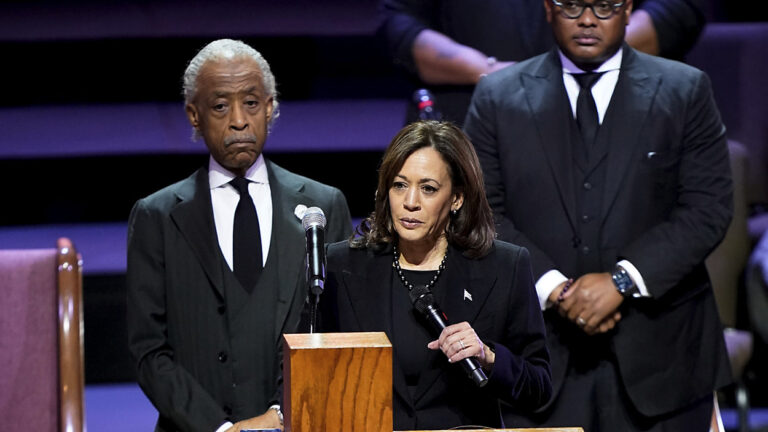 With inventory being depleted and three glatt kosher meat packing plants out of service, the scramble for glatt kosher meat intensified in markets throughout the country.
With inventory being depleted and three glatt kosher meat packing plants out of service, the scramble for glatt kosher meat intensified in markets throughout the country.
The Iowa and Nebraska plants of Agriprocessors as well as the Minnesota plant of Alle Packing, which was shut down due to problems stemming from a fire in June, accounted for the slaughter of over 1,000 cattle a day. Despite discussion of a possible reorganization of Agri, meat cases in stores all over the county were empty this week.
Many stores reported increased sales of poultry and fish. One rabbi in the West told KosherToday: “This past Shabbos was the first in a long time that my wife made a pareve cholent.” The rabbi said that he was hoping to lug back several boxes of meat on a trip to attend a wedding in Brooklyn next week.
Meanwhile, prices continued to rise in markets where the meta was available and for poultry nationwide. Kosher food prices in general have been on the increase, as have prices for all foods. Higher feed costs for chickens, hogs and cattle, will lift U.S. food prices 7% in 2009, according to economists from the National Chicken Council and the consultancy Farm Econ. “The sizable increase in the cost of producing food has not been fully passed on to the consumer,” said private consultant Bill Lapp, reported Reuters.
There was somewhat of a silver lining in that some sources were saying that lower fuel prices and a reduction in shipping costs may mitigate the increases. Wegmans said that it was anticipating slashing prices on hundreds of dairy, meat, produce, frozen and bakery items in anticipation of lower food and shipping costs in 2009.
In the meantime, kosher caterers in many parts of the country report that the shortages, price increases, and the effects of a sluggish economy are cutting into their businesses. Many customers are cutting back on the “extras,” which is traditionally a profit center for the caterers.
(Source: Kosher Today)











29 Responses
I have been to King’s Super Center and you can see the empty freezer cases in the meat section.
I don’t know why kosher meat costs so much. They don’t pay the shoctim & maschichim that much. I heard on the radio -Wegmans, which is high end market, cut their chicken prices from $1.29/lb to $.79/lb. (Due to the economy) There is absolutely no reason prices should go up because there is a shortage. The economics of supply and demand shouldn’t apply in the frum community. What happens is when the supply goes down and the demand isn’t met -unscrupulous individuals take advantage and raise prices. This is not the case of increasing supply from what there was, just trying to go back to the level to where it was. This doesn’t cost them any more money to produce.
So people somewhere between the producer and your store are taking advantage. This is genaiva and should be stopped!
Health, I don’t know why you think the frum community shouldn’t be subject to the laws of supply and demand. It’s not about people taking advantage of the low supply, its just how it works. Saying that within the frum community this shouldn’t happen is like saying that the laws of physics shouldn’t apply either and therefore we should be able to get a thousand steaks from a single cow to make up for the plants that have shut down. Economics are not something that can be controlled just to make things more “fair” within the Jewish community. Eventually, G-d willing, the plants will reopen and prices will come back down, but until then, we have no choice but to deal with this thing that the secular world calls reality.
Please everybody let us try to avoid loshon hora,and motzei shem ra.
dcohn: your logic is faulty: Health pointed out that Goyishe supermarkets are reducing prices by almost half, DESPITE market considerations, you ignore this completely while composing your comment.
Due to the economy Wegmans is losing money so they cut prices because they want to make it up with quantity.
If companies have half the meat they need to raise prices to meet operating expenses.
Health why is making money unscroupolous(sic)? Operating expenses still exist so even if they are shechting less they still have most of their costs so technically it does “cost” more to produce.
This woule be a good time to invest in opening up a kosher meat operation.
I have news for all you folks. The price increase is due to the rise in the price of corn. (for chickens, anyway). As a result, the farmers are charging more per bird to the shlacht houses. And they, in turn, are forced to raise their prices.
HaShem is punishing us for the Chilul Hashem committed by a Jew!
I think 11 and 2 are right; we pay therefore we should decide how much companies are allowed to charge and how much they can make.
iib002: You seem thrilled!!!! And also, exactly what kind of electronic device is it you have that tells you how punishments are meted out and their specifics, what is it, a Magic 8 Ball, a blackberry with a special hookup — what do you have exactly?
Currently there is only one kosher heimishe beef supplier left, ALLE.
Alle was founded at the direction of the Satmar Rebbe who instructed Mr Weinstock to provide meat to the kosher/heimishe consumer. Since then, the Weinstocks have forgotten their original purpose, and have made a extremely successful business out of it.
They are now charging exorbitant prices for beef, and everyone has no choice but to pay their prices. They have gone up almost 30% on the wholesale beef prices.
They are no longer meeting their original purpose as requested by the Satmar rebbe.
It’s no wonder the union has started up with Alle. When you lose the protection of the Rebbe, you open yourself up to failure.
What is needed is a new plant to open, with a reasonable price and markup. Yes a profit should be made, but raping the public is not acceptable.
#12
yes a Jew like you
If you are traveling out of town and are visiting an unfamiliar restaurant or supermarket, you should be EXTRA vigilant if the meat they sell you is actually kosher. The nisayon for these out of town restaurants / supermarkets are very high now and if they simply can’t get enough kosher meat to sell, they are forced to either shut down temporarily or sell you non kosher meat. BE EXTRA CAREFUL.
#16
100% right that is why I am sick about this whole thing
To Arc #8,
You would be technically correct if that’s what has happened, but it hasn’t. The reason why there is a shortage is because plants have closed.
The plants that are still open don’t have anymore operating costs than before.
To arc #13,
Your sarcasm is appaling; Did you ever here of mekach tos? Chazal said if you charge more than a sixth profit it’s a mekach tos. Who gave Chazal a right to make takonos on how much profit you make? That was a rhetorical question. They used to say in Europe – A Gallach (Bishop) is frum, A yid is ehrlich! Money is one the reasons a lot of frum yidden voted for Obama because they think that the govn’mt is going to give them more. Money is not what is important in life.
Health,
1/6 is more than the market price not more than their cost.
The plants didnt close right away, they still own their buildings amongst their other costs which still exist.
They couldnt produce as much because their workforce was cut in half but the plants were still open. So your assumption is wrong.
I’d like it to be cheap as much as the next guy my bills are rising and grocery costs are skyrocketing but they are in business to make money not to make me happy.
“…and three glatt kosher meat packing plants out of service…”
Wrong.
None of these plants produced glatt meat exclusively. They produced meat some of which was glatt, some of which was kosher and some of which was trief. Since the plant can charge more for glatt there is a tendency to try and declare more meat glatt then necessarily occurs. But bottom line, the actual amount of glatt produced by these plants is relatively small. That said, more people will have to make do with kosher and not glatt. Either that or a) shecht meat themselves, or; b) eat more fruits and grains.
To those of you who don’t realize it, kosher meat costs more than treif because not every animal that is shected ends up kosher. If it isn’t, then the company has a loss. Kosher meat also uses only half the animal-more loss. Then you have to prossess it by kashering-a step treif meats don’t have. Do the math. It’s more expensive to produce.
For those who want to bring the price down, try not eating meat for a while. Chicken or vegitarian recipes can be varied and are very good.
#15 I beg to differ with you. Alle is not the only kosher beef supplier. There’s International (they shecht in Stafford Springs, CT., and also in Wyalusing, Pa.) and there’s Rabbi Gornish (shechts in Paterson, NJ), and then there’s Monsey Glatt (shechts in Carteret, NJ). I’m sure there are others as well.
#22 Most places that shecht beef have a deal with the company that any traif meat is taken back by the company. Granted, the kosher meat passes through several more processes including kashering and nikor and hashgacha which automatically ups the price.
To #22,
If the animal is trief and the part we don’t eat- they don’t lose on -it goes to the goyim to sell. I know it costs more to produce than treif but if you read my first post, not that much more. Wegmans, which is one of the most expensive goyish stores, was only charging till now $1.29/lb for chicken. I don’t recall ever paying in the last couple of years less than $1.79/lb. Now they are charging $1.99/lb or over $2/lb. This is highway robbery.
To arc,
So your saying they have to charge extra because two buidings were sitting empty. How much overhead is that? I’m sure not a lot, plus they will sell the buildings. Also, it was only Rubashkin that was working a few months with less staff in only one plant and now that plant has closed down. Save your pity for people that deserve it!
You can get a reputable CPA to audit the Kosher meat factories and find out if hey are charging fair prices.Now that some plants are closed,there is lesss available for the same amount of consumers.When supply goes down and demand stays at the same level,the price naturally goes up.When fixed costs are the same with production down,the cost to produce goes up. The work involved in producing kosher meat is much more involved than non-kosher meat,so extra fixed costs are added.If you would understand economics,you’d judge this more fairly. The workers in the kosher plants are not getting paid if they don’t have work,so less people have money to spend resulting in slower economy,trickling down to the next suppliers who are not selling as much as before.
No pity, I just dont think they have to give it cheap because you want it.
No I said they still have overhead even if though they lost half their staff.
Also 2 buildings werent empty before it was 3 but that was also wrong. you made up facts and halachos (fine confused termonology and dont fully know the halacha) to fit your agenda.
I’m not a Rubashkin nor am I an apologist for them but to throw around words like “unscroupolous” because you want free food is wrong.
I hope that all of those that were cheering over the troubles at rubashkin are now happy. Make no mistake, those behind the attack on rubashkin are at war with kosher shechitta and they are winning. Wake up people!
people,i was told by a friend in the industry,that out of 100 shechted cows only 27 are kosher,and only 9 out of the 27 are GLATT kosher.so go figure out the difference in prices. In any case,how, I ask, is it possible to buy deli from Chicago’s famous Roumanian Smokehouse at;$ 15 a lb for Pastrami,$ 16 a lb for tongue,and 12 a lb for corned beef? for those of you that are familiar with there products(and who isnt)know they have a good( Chicago CRC) hechsher,and their products are delicious and fresh. So,why are the same deli products DOUBLE the price in New York?
Plenty of beef in Denver Colorado. There are two shechitas in Colorado. The entire product of each shechita goes to a particular city. Denver gets to take a little off of the inventory for itself. Like hamburger to $3.99 a pound rib steaks for $ 7.50 a pound and chuck for $5.99 a pound. I understand that a much larger plant in Denver is going to open up about 1100 head of cattle a day will be processed if the right plant opens up and if the plant can get enough kosher employees.
No. 29:
Romanian Kosher in Chicago is under the OU. I agree that there products are top notch.
Meat in NYC may cost more than in Chicago for reasons similar to why rents and home costs are higher in NYC than in Chicago.
If you shecht your own it will be cheaper. It’s buying direct you always save money.